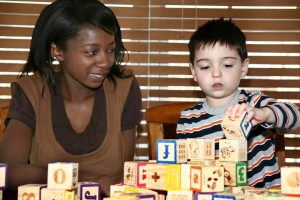Two popular misconceptions exist when talking about au pairing. One is based on gender bias; the other is that it’s not a “proper” job. Reality poses an altogether different take. Living and working abroad while being entrusted with a parent’s most precious possession, their children, is no laughing matter. Nor is it one necessarily reserved for women. Mix this with cultural immersion, learning a new language, and simply being away from home for long periods of time, and one is offered an insight into the unique universe of the au pair.
A good au pairing experience can be life-changing. While most are girls, boys are increasingly trying the experience. Take Alejandro Rico de Miguel, a Spanish industrial design graduate, who began work as an au pair for a family living in France close to the Swiss border last November. Within the household, Alex’s au pairing job is treated as such: a job. Despite having had to navigate a bureaucratic quagmire of paperwork, Alejandro stresses that “my role is clearly defined and legally recognised by the French authorities.” In Switzerland, it is the Federal Office for Migration that provides the requisite guidelines ensuring a correct salary, holidays and the description of duties to be carried out by the appointee. These are rules that both sides need to respect.
Respect for such clauses, however, is by no means automatic. Many stories conjure a totally different reality to that of Alejandro’s. One problem is the legal and financial cleavage between being a domestic helper and an au pair – a subtlety too little understood by many host families. Not being paid properly and lacking legal status are unfortunately some of the risks people take when accepting an au pair position. Au pairing is often considered – wrongly – an ad hoc profession, causing commonplace misdemeanours detrimental both to the individual and those aspiring to work in foreign countries as au pairs. It also prevents potentially positive experiences, such as Alejandro’s, from happening more often. As he touchingly points out, “this opportunity has enabled me to integrate into a family which I have ended up loving and caring for almost as much as my own.”
Au pairing
Definition: Au pair – A young person living with and working for host family, looking after children and doing light domestic tasks, in return for lodging and a modest stipend. Set up as a cultural exchange.
Looking for an au pair: EU/Swiss regulations: Official au pair employment regulations are set out by the Federal Office for Migration. The same goes for the French side. They have many stipulations, including that the host family must pay for health insurance and a language course.
Working as an au pair
Safety: When setting up a match with your host family online, beware of scams. Look for warning signs such as families asking for money, a deposit, or your personal documents (passport/driving licence), and suspicious emails. Contact the matching site for advice and to alert them if you are unsure.
Visas: Depending on what country you are from or going to, you may need a visa. Check out the guidelines on the consulate’s website and remember to apply in advance!
Help: If you run into trouble during your stay, do not hesitate to contact your parents, the agency, your teachers if you are studying, or even the police. Do not suffer in silence!
Matching au pairs with host families The following links are reputable au pair-host family matching sites. However no site is 100% secure; always be aware of potential scams.
www.greataupair.com
www.thebestaupair.com
www.rockmybaby.ch
For extra information, refer to:
www.newaupair.com
www.englishforum.ch
For part-time childcare jobs:
www.serviceathome.com
Check out the cantonal guidelines at:
www.vd.ch
www.ge.ch
French side:
http://www.service-public.fr/ (Office government site – different languages)
http://www.aupair-world.net/index.php/au_pair_program/france
Christopher Woodburn and Jennifer Rose

